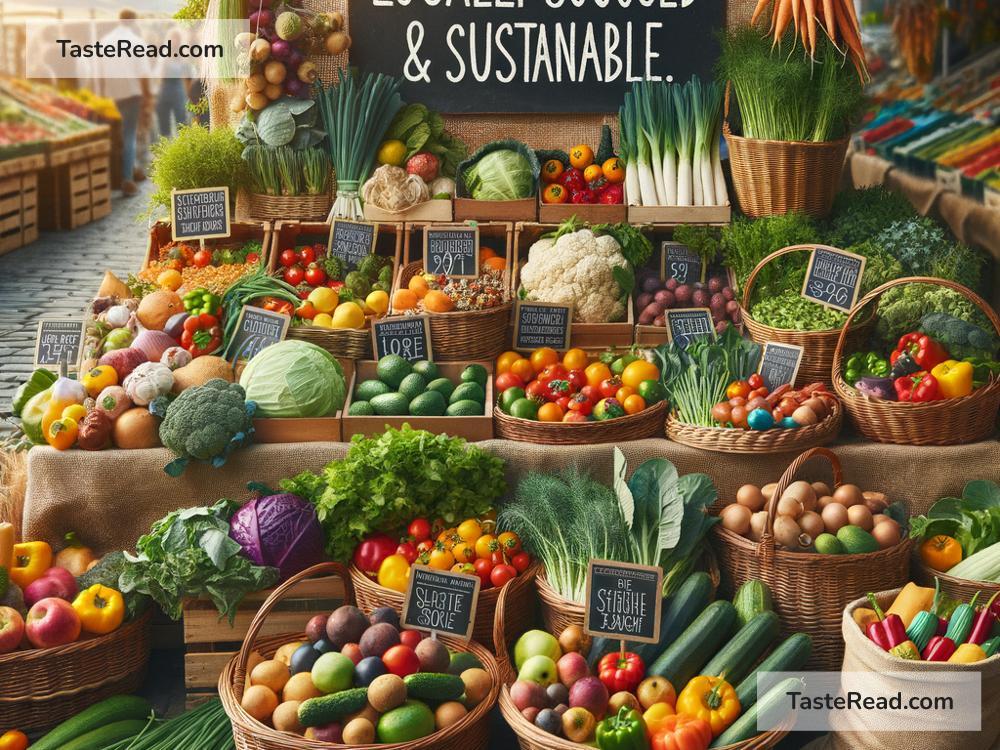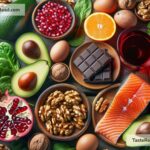Title: Eating for a Greener Future: Foods That Enhance Sustainability
In recent years, people have become more aware of the importance of sustainability. What we eat plays a big role in protecting our planet. By choosing foods that are better for the environment, we can help reduce pollution, prevent deforestation, save water, and fight climate change—all while eating delicious meals.
Let’s explore how our food choices impact the Earth and what foods can help us improve sustainability for future generations.
What Is Sustainable Eating?
Sustainable eating means choosing foods that are grown and produced in ways that protect the environment, promote social justice, and support the health of communities. It focuses on reducing waste, conserving natural resources, and finding harmony with nature.
Some foods have a smaller carbon footprint, use less water, and require fewer chemicals and energy to grow. By eating sustainably, we can enjoy nourishing meals while helping the Earth stay healthy.
Top Sustainable Food Choices
-
Plant-Based Foods
Foods like vegetables, fruits, grains, legumes, nuts, and seeds are some of the most sustainable options. They use fewer resources to grow and produce compared to animal-based foods like meat and dairy. For example, growing lentils requires far less water and energy than raising cattle. Eating more plant-based meals not only reduces your environmental impact but also offers fantastic health benefits. -
Local and Seasonal Produce
Choosing locally grown, seasonal foods supports farmers in your community and reduces the environmental cost of transporting food from faraway places. Foods that are in season are fresher, tastier, and often require less energy to grow compared to those grown in artificial conditions. For example, enjoying seasonal apples in the fall or leafy greens in the spring ensures you’re making an eco-friendly choice. -
Organic Foods
Organic farming avoids synthetic pesticides and fertilizers, which can harm soil, water, and wildlife. Instead, organic methods emphasize natural techniques, like crop rotation and composting, to grow food. While organic produce isn’t always perfect, it’s generally better for the planet—and your health! -
Whole and Unprocessed Foods
Highly processed foods, like packaged snacks or ready-made meals, often contribute to waste and pollution during production. Opting for whole foods like beans, rice, fresh vegetables, and whole grains cuts down on energy and packaging waste. Plus, these foods tend to be healthier and easier to cook in creative ways. -
Sustainably Caught Seafood
Fish provides many nutrients, but overfishing and harmful fishing practices are damaging ocean ecosystems. Choose seafood that comes from sustainable sources, like fish certified by organizations such as the Marine Stewardship Council (MSC). Sustainable seafood helps protect marine life and ensures fish populations can thrive for future generations. -
Plant-Based Proteins
Proteins like tofu, tempeh, chickpeas, lentils, and black beans are fantastic alternatives to meat. They require fewer resources to produce and emit less greenhouse gas into the atmosphere. For example, replacing beef with lentils for one meal saves gallons of water, reduces deforestation, and lowers your carbon footprint dramatically. -
Ancient Grains
Grains like quinoa, millet, farro, and amaranth have been grown for centuries using eco-friendly methods. These grains are drought-resistant, meaning they can thrive with minimal water. They also encourage biodiversity in farming and offer diverse nutrients to keep your meals healthy and exciting. -
Regenerative Foods
Regenerative farming—an approach focused on improving soil health and restoring ecosystems—produces food with great care for the environment. Regenerative crops and livestock, like pasture-raised eggs or grass-fed beef, come from farms that actively work to reduce carbon emissions and improve biodiversity.
Simple Steps to Eat Sustainably
Sustainable eating doesn’t mean completely changing your habits overnight. Start small! Try some of these ideas:
- Meatless Mondays: Dedicate one day each week to eating plant-based meals, like veggie stir-fry, lentil soup, or homemade hummus wraps.
- Buy Local: Shop at farmers’ markets or local stores that sell produce grown in your area.
- Plan Meals to Reduce Waste: Only buy what you need to avoid food waste. If you have leftovers, store them or get creative by turning them into new dishes.
- Grow Your Own Food: Even small spaces like balconies can host potted herbs, tomatoes, or leafy greens.
- Support Eco-Friendly Brands: Look for food companies that prioritize sustainability in their packaging and farming methods.
Why It Matters
Making sustainable food choices is one of the easiest ways we can help fight climate change and protect the planet’s resources. Agriculture is one of the main contributors to environmental problems like deforestation, water shortages, and pollution. By eating less meat, choosing local foods, and reducing waste, we can shrink our environmental footprint and make a positive impact.
Our food decisions not only affect the environment but also future generations. Simple choices—like swapping beef for beans or buying organic apples—can make a big difference over time.
A Delicious and Sustainable Future
Eating sustainably doesn’t mean giving up flavor or enjoyment. With so many plant-based recipes, seasonal dishes, and creative cooking ideas available, you’ll discover that sustainability can be nutritious, affordable, and satisfying.
The power to protect the planet is on your plate. Every meal is an opportunity to make a positive change for yourself and the world around you. So start small, experiment with new foods, and savor the journey to a greener future. Together, we can build a more sustainable world, one delicious bite at a time.
What’s your favorite sustainable food? Let us know in the comments below!


